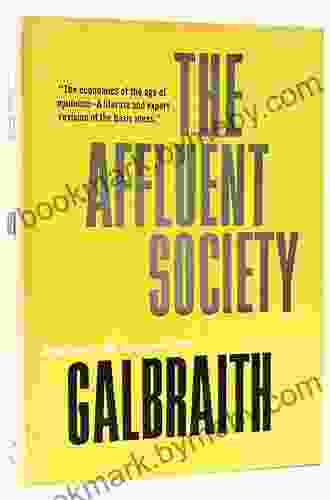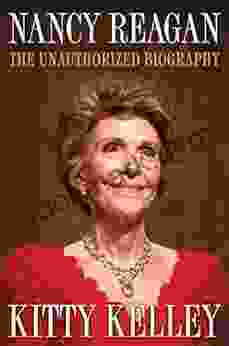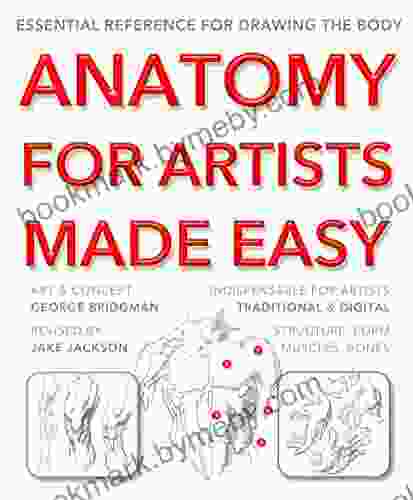Unveiling the Truths of Modern Wealth: A Comprehensive Review of "The Affluent Society" by John Kenneth Galbraith

In the ever-evolving tapestry of economic thought, "The Affluent Society" by John Kenneth Galbraith stands as a towering beacon, illuminating the complexities of wealth and its impact on human well-being. Published in 1958, this seminal work revolutionized the way we understand consumerism, inequality, and the pursuit of happiness in modern societies.
4.6 out of 5
| Language | : | English |
| File size | : | 850 KB |
| Text-to-Speech | : | Enabled |
| Screen Reader | : | Supported |
| Enhanced typesetting | : | Enabled |
| Word Wise | : | Enabled |
| Print length | : | 290 pages |
| Lending | : | Enabled |
Galbraith, a renowned economist and social critic, penned "The Affluent Society" at a time when the United States was experiencing unprecedented economic growth. Yet, amidst this prosperity, he observed a growing sense of dissatisfaction and unease. The abundance of material possessions, he argued, had led to a paradoxical situation where people felt both wealthier and less fulfilled.
The Paradox of Plenty
At the heart of Galbraith's thesis lies the concept of the "paradox of plenty." He argued that as societies become more affluent, they tend to produce more goods and services than consumers can reasonably consume. This overproduction, in turn, leads to a decline in the marginal utility of goods—that is, the additional satisfaction derived from acquiring more of them.
Galbraith illustrated this concept with a thought-provoking example. He asked readers to imagine a society where everyone is given a free car. While initially, people would be overjoyed, over time, the abundance of cars would diminish their value. Eventually, they would become mere transportation devices, providing little additional happiness or status.
This paradox, Galbraith argued, has profound implications for our understanding of economic growth and human well-being. He warned that a relentless pursuit of material wealth, without a corresponding focus on non-material values, can ultimately lead to a society that is both prosperous and deeply unhappy.
The Role of Consumerism
Galbraith also shed light on the pervasive role of consumerism in modern society. He argued that corporations and advertisers have created a culture where individuals are constantly bombarded with messages that equate happiness with the acquisition of material possessions.
Consumerism, Galbraith believed, creates a cycle of dissatisfaction and waste. It leads people to believe that their happiness depends on owning the latest gadgets, designer clothes, and luxury cars. This, in turn, perpetuates a system where production and consumption become ends in themselves, divorced from any meaningful connection to human well-being.
The Pursuit of Happiness
In the final chapters of "The Affluent Society," Galbraith turned his attention to the elusive concept of happiness. He argued that true happiness cannot be found in the accumulation of material wealth alone. Rather, it lies in the pursuit of non-material values such as leisure, creativity, personal relationships, and social engagement.
Galbraith challenged the prevailing belief that economic growth inevitably leads to greater happiness. He pointed out that while material wealth can provide certain comforts and conveniences, it cannot buy love, friendship, or a sense of purpose. In fact, he argued that an excessive focus on material possessions can actually hinder our ability to experience true happiness.
Legacy and Relevance
"The Affluent Society" has had a profound impact on economic thinking and social policy. It has inspired countless scholars, policymakers, and activists to question the traditional assumptions about wealth and happiness. The book's insights remain as relevant today as they were when it was first published.
In an era marked by rampant consumerism, widening inequality, and a growing sense of social isolation, "The Affluent Society" serves as a timely reminder of the dangers of neglecting non-material values. It challenges us to rethink our priorities and to pursue a more balanced and fulfilling life.
John Kenneth Galbraith's "The Affluent Society" is a must-read for anyone who seeks a deeper understanding of the complex relationship between wealth, consumerism, and happiness. Its insights are as valuable today as they were when the book was first published, offering a timeless guide to navigating the challenges and opportunities of modern society.
Whether you are an economist, a social critic, a policymaker, or simply someone who wants to live a more fulfilling life, I highly recommend picking up a copy of "The Affluent Society." It is a book that will challenge your preconceptions, broaden your perspective, and inspire you to think more critically about the meaning of wealth and happiness in the 21st century.
4.6 out of 5
| Language | : | English |
| File size | : | 850 KB |
| Text-to-Speech | : | Enabled |
| Screen Reader | : | Supported |
| Enhanced typesetting | : | Enabled |
| Word Wise | : | Enabled |
| Print length | : | 290 pages |
| Lending | : | Enabled |
Do you want to contribute by writing guest posts on this blog?
Please contact us and send us a resume of previous articles that you have written.
 Book
Book Novel
Novel Page
Page Chapter
Chapter Text
Text Story
Story Genre
Genre Reader
Reader Library
Library Paperback
Paperback E-book
E-book Magazine
Magazine Newspaper
Newspaper Paragraph
Paragraph Sentence
Sentence Bookmark
Bookmark Shelf
Shelf Glossary
Glossary Bibliography
Bibliography Foreword
Foreword Preface
Preface Synopsis
Synopsis Annotation
Annotation Footnote
Footnote Manuscript
Manuscript Scroll
Scroll Codex
Codex Tome
Tome Bestseller
Bestseller Classics
Classics Library card
Library card Narrative
Narrative Biography
Biography Autobiography
Autobiography Memoir
Memoir Reference
Reference Encyclopedia
Encyclopedia J G Heck
J G Heck Jack Smith
Jack Smith Patrice Met
Patrice Met Jason Tharp
Jason Tharp James Barr
James Barr Kathy Woods
Kathy Woods Penny Quillan
Penny Quillan Michelle Loucadoux
Michelle Loucadoux Jack Hunnicutt
Jack Hunnicutt John M White
John M White Harvard Business Review
Harvard Business Review Jake Anderson
Jake Anderson J E Comet
J E Comet Marc Hamer
Marc Hamer Nancy Bardacke
Nancy Bardacke Patrick Brode
Patrick Brode Natalie Sisson
Natalie Sisson Jack Cole
Jack Cole Jacqueline Shea Murphy
Jacqueline Shea Murphy Steven Rattner
Steven Rattner
Light bulbAdvertise smarter! Our strategic ad space ensures maximum exposure. Reserve your spot today!
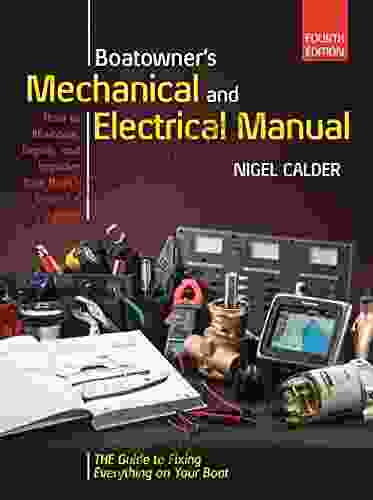
 Fernando PessoaMaster the Mechanics and Electrics of Your Boat: Boatowners Mechanical and...
Fernando PessoaMaster the Mechanics and Electrics of Your Boat: Boatowners Mechanical and...
 Italo CalvinoUnveiling the Untamed Beauty and Enigmatic History of the Nahanni Valley in...
Italo CalvinoUnveiling the Untamed Beauty and Enigmatic History of the Nahanni Valley in... Leo TolstoyFollow ·3.1k
Leo TolstoyFollow ·3.1k Russell MitchellFollow ·6k
Russell MitchellFollow ·6k Benjamin StoneFollow ·19.9k
Benjamin StoneFollow ·19.9k Braeden HayesFollow ·12.1k
Braeden HayesFollow ·12.1k Clark BellFollow ·4k
Clark BellFollow ·4k Esteban CoxFollow ·3.2k
Esteban CoxFollow ·3.2k E.M. ForsterFollow ·19.6k
E.M. ForsterFollow ·19.6k Thomas HardyFollow ·9.2k
Thomas HardyFollow ·9.2k
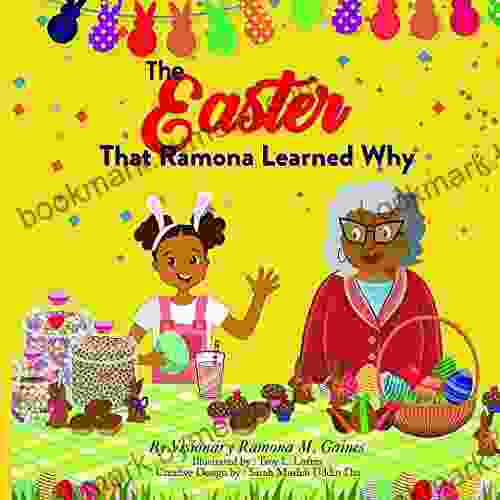
 Phil Foster
Phil FosterThe Unforgettable Easter: Ramona's Journey of Discovery...
Embark on Ramona's Extraordinary Easter...

 Levi Powell
Levi PowellThe Old City and Mount of Olives: A Journey Through...
Jerusalem, a city etched into the annals of...

 Henry Hayes
Henry HayesThe Clearances: A Journey Through Scotland's Hidden...
In the 18th and 19th...
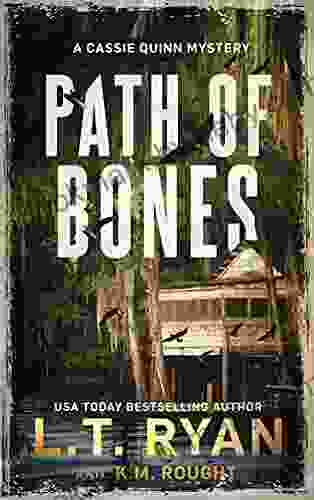
 Edward Reed
Edward ReedUnravel the Enigmatic 'Path of Bones' with Cassie Quinn...
Step into the...
4.6 out of 5
| Language | : | English |
| File size | : | 850 KB |
| Text-to-Speech | : | Enabled |
| Screen Reader | : | Supported |
| Enhanced typesetting | : | Enabled |
| Word Wise | : | Enabled |
| Print length | : | 290 pages |
| Lending | : | Enabled |


